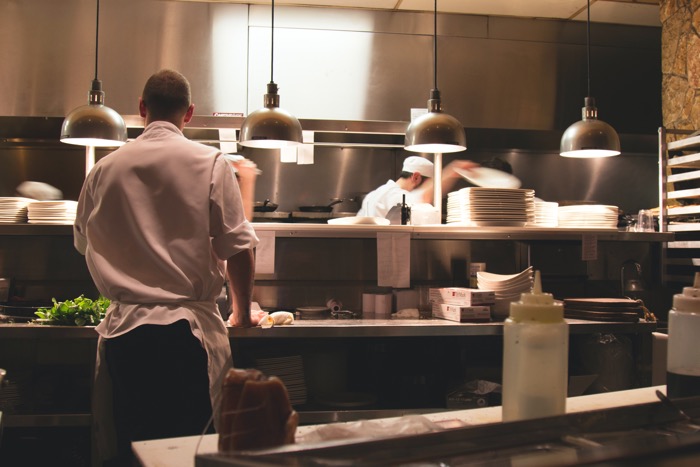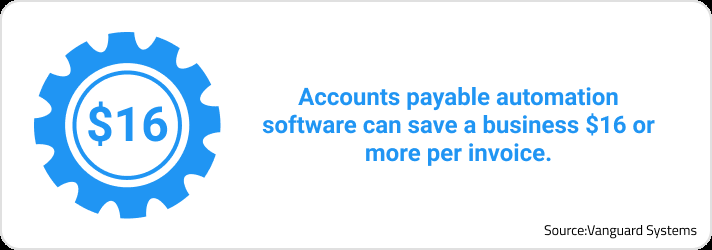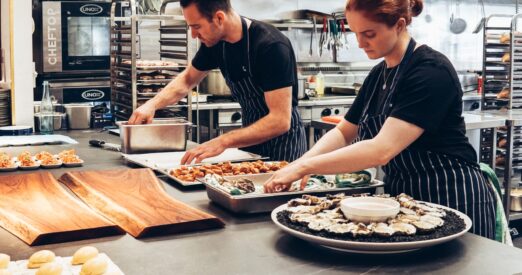
Restaurant Bookkeeping vs. CPA Services: What to Consider
by The Ottimate Editorial Team
In the dynamic world of restaurant management, where excitement, creativity, and on-the-fly decision-making define the industry, there’s a myriad of tasks beyond curating menu items and cultivating exceptional customer experiences. While keeping tables full is paramount, behind-the-scenes work like day-to-day bookkeeping is equally critical. Understanding your financial standing is vital, yet it can easily consume your time and focus. That’s where restaurant bookkeeping and restaurant CPA services come in, offering solutions to alleviate this burden.
You’ll learn:
- What are restaurant bookkeeping services?
- What are restaurant CPA services?
- How to automate restaurant bookkeeping
- Restaurant bookkeeping services vs. CPA services
MCM CPAs & Advisors was handling 2,300 invoices per month by hand before they discovered Ottimate.
What’s the Difference Between Bookkeeping and CPA Services?
The practice of accounting exists to provide useful and timely financial information. Bookkeeping is an important part of accounting. But it’s not the only part.
When a business is looking to outsource a part of their accounting function, an important decision they have to make is whether to retain the services of someone who can keep their books clean or whether they need that plus a bit more.
Those extra advisory services usually come from CPA firms: accounting teams that handle both the clerical side of accounting and the strategic advisory.
Think of bookkeepers like the line cook and a strategic accountant as the chef.
Restaurant bookkeeping services include business bank reconciliations, credit card management, and reconciliation, accounts payable, accounts receivable, sale tax, payroll. They’re the behind-the-scenes daily task performers that keep front-of-house operations running smoothly and in line with the company’s overall mission.
Restaurant Bookkeeper Job Description: What Do They Do?
A certified bookkeeper has completed a bookkeeper training course in the areas listed under responsibilities.
Responsibilities for a restaurant bookkeeper include:
- Assist controller/director of finance in producing financial reports by collecting, analyzing, and summarizing account information
- Process payroll
- Food and beverage daily cost analysis
- Post daily and monthly journal entries
- Assemble the trial balance and financial statements, including balance sheet, income and cash flow statements.
- Assist controller/director of finance with monthly, quarterly, and annual audits.
- Assist with monthly inventory count and controls
- Structure a method to account for financial transactions by establishing a chart of accounts and also define bookkeeping policies and procedures
- Maintain accounts by verifying, allocating, and posting transactions
- Settle accounts by reconciling general ledger, balance sheet, and bank and credit card entries/transactions
- Outline accounts receivable invoices — review payments received and record deposits
- Maintain quality historical records by filing documents
- Ensure monthly, quarterly, and year-end closing happens accurately and on time
- Reconcile POS with the main financial reporting software to ensure and confirm all business transactions are accounted for and booked accurately
- Conduct and manage the general ledger
Why Hire a Restaurant Bookkeeping Service
- Saves time. Bookkeeping is a fascinating, stimulating combination of clerical work and financial accuracy. Fascinating and stimulating though it is, it takes a lot of time away from running a restaurant.
- More eyes on your finances. A focused bookkeeper handles financial data recording & accounts payable, which shrinks the margin for error.
- Fast financial analysis. A bookkeeper keeps your books clean and up to date. This makes running reports or checking in on your overall financial status quick and painless.
- Detailed tracking of income and expenses. Detailed, accurate books help you know precisely how much income you need and easily identify which expenses are draining your budget.
- High-quality record-keeping. A bookkeeper’s job is to make your books shine like the top of the Chrysler building. And if you happen to get audited, those clean, shiny books will be worth their weight in gold.
What Are Restaurant CPA Services?
Opposed to only doing bookkeeping, think of CPA services as the full financial package. So not only do you get bookkeeping from CPA services, but you get a trusted financial advisor too.
To better understand what restaurant CPA services entail, let’s go over what a restaurant CPA is:
Restaurant CPA Job Description: What Do They Do?
A Certified Public Accountant (CPA) has met both educational and experience requirements prescribed by the state licensing laws and has passed the National Uniform CPA Examination.
To qualify for certification, rigid academic standards must be met.
Many states require an applicant to have 150 credit hours of college education (including hours in specified accounting and business courses) just to sit for the exam.
The exam covers topics like financial accounting and reporting, auditing, and business law, as well as federal income taxes, managerial accounting, and government accounting.
Companies that provide restaurant CPA services or independent CPA restaurant experts are highly recommended — and restaurants should consider hiring them.
Hiring a CPA will help your restaurant business solvency and reduce your risk of tax issues down the line.
A CPA will advise and help you to start your restaurant business in accordance with state requirements, internal controls, and guide you on financial entries to make sure your restaurant is compliant and following generally accepted accounting principles.
Keep those books clean!
What To Look for in a Restaurant CPA
- Passionate about delivering exceptional customer experiences
- Does the right thing — all the time
- Detail-oriented
- Leader in our industry and community
- Team player
- Owns their actions and decisions.
- Sense of urgency and discipline
Why Hire a Restaurant CPA
- Industry expertise. They deal with special sales tax, payroll tax, and income tax written just for them. A niche CPA understands the intricacies of these laws and can run a successful audit. CPAs frequently read through legislation to understand the effects on their clients, monitoring both accounting and business compliance.
- Restaurants run specialized operations. You view your margins and your ideal cost to profit % differently than other businesses. A restaurant CPA understands this and can give you expert guidance.
- Restaurants require financial guidance. A CPA’s advice can help prevent business mistakes or becoming financially strapped. A CPA can also help business owners reduce their taxes and expenses while fulfilling all tax and social declarations.
- Audit protection. Restaurants need protection, so enlisting a CPA accounting service reduces your restaurant’s risk of undergoing a tax audit.
The benefits of having a chartered accountant are bountiful. But the main advantages heard from CPA clients range from security and tranquility — to feeling supported and valued.
Automate Restaurant Bookkeeping With AP Automation
If you want to boost productivity, work quality, AND save on labor cost — automating more of your bookkeeping is critical.
Not to mention: The more manual work accountants can eliminate, the more time they’ll have to focus on more profitable tasks (such as analyzing financial statements).
AP software like Ottimate helps you automate bookkeeping to increase efficiency and streamline workflow.
Manually dealing with accounts payable can be a major time-suck for restaurant bookkeepers and CPAs.
So automate your restaurant AP to reduce the time, paper, and money spent involved in manually managing invoices.
Accounts payable automation software can save a business $16 or more per invoice.

So, where do you start?
Ottimate will help you spend less time processing invoices, do bill pay easier, and gain more insight from invoices.
Request a demo by clicking the button in the top-right corner.
Restaurant Bookkeeping vs. CPA Services
Bookkeepers and CPAs are both valuable and will help you keep your restaurant’s books clean.
The key difference?
A bookkeeper mainly focuses on keeping record of company transactions. But a CPA will go more in-depth with financial analysis to ensure financial KPIs are on track.
Think of it sort of like choosing between a nurse or a doctor. A nurse will keep track of your health, but a doctor will analyze your health and counsel you.
Stay up to date on the latest news in AP automation and finance
Related

